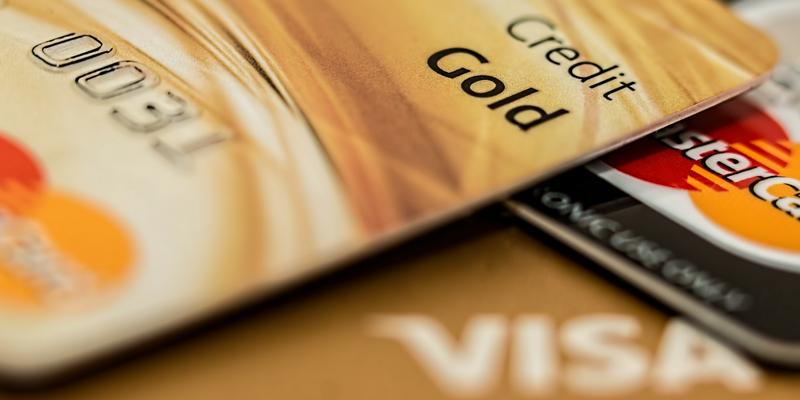https://www.youtube.com/watch?v=zFoM4p4qZr8&t
Everyone starts out their financial lives with a clean slate, but over time you can accumulate bad credit that affects your future finances, loans, and stress.
Now that credit cards are so readily available, people are more likely to acquire bad credit than ever before. Let’s be clear, it’s not the credit cards fault people go into debt and build bad credit, it’s the people’s.
Though if you already find yourself saddled with bad credit, there are services that can help you with this including fixmy.credit.
And if you still have a clean financial record or are committed to rebuild one, here are five of the best ways to avoid bad credit.
5 Ways To Avoid Bad Credit
1) Pay your bills on time
This first one couldn’t be more obvious when talking credit score. As you might have already guessed, paying your bills on time every month is the number one thing you can do from preventing any damages to your credit record.
This can be particularly damaging if you miss payments by 30 days or more, so keeping on top of this task should be one of your main priorities.
Remember, even small overdue charges can have a negative impact. Always bear this in mind before making new purchases and receiving a bill.
2) Always start with credit-impacting bills
If you’re in one of those month where it seems everything financially that could go wrong does, you may not have enough money to pay all of your bills. In this situation it always helps to know which bills are the ones which can directly affect your credit score straight away.
That is not to say that you should entirely ignore the other bills, but you can prioritize the crucial bills—credit card, mortgage, loans etc.— to start off with.
Then do whatever you can (save more, spend less, eat peanut butter and jelly for a week) to pay off the bills you couldn’t the month before.
3) Avoid taking on unnecessary debt
As we mentioned at the start, more and more people are taking on debt with these days in order to finance their lifestyles (aka “Keeping up with the Joneses”). But debt doesn’t go away on its own, it needs to be properly managed and paid for.
If you have too much debt which is spread around all over the place, you are much more likely to start missing payments because you don’t have enough money to pay them or you forget about them which will lead you getting into bigger problems.
And your credit score is both influenced by the level of debt that you have overall and also your monthly credit card balance in comparison to your credit limit. Keep that monthly balance as low as you reasonably can which should open up extra savings to put toward debt.
4) Practice managing your money
People manage money in different ways, but you want to make sure you avoid getting in over your head as much as possible.
So, before you decide to take on any new expenses, make sure you stop to think how this could affect you.
You will get the fullest picture of this by creating a monthly budget in which you weigh up your monthly salary versus your expenses. Identify what is essential and nonessential so you know what can be cut if you need to.
5) Save for unexpected emergencies
Though bank balances aren’t factored into your credit score, having some reserves of cash put aside can ensure that you are in a position to deal with any negative financial events which may come your way.
After all, you never know when a financial emergency could put your current lifestyle under threat, so always being properly prepared is certainly the best policy to maintain. And having an emergency account to deploy cash protects you from going deeper into debt if that’s your reality.
Choose Good Credit
Avoiding bad credit is a good financial practice throughout your entire life, so use these five methods as a way to achieve some financial confidence.
Then you can rest easier at night knowing at least your finances are in order, even if the rest of your world is not.
And please remember, every financial decision you make from here on out (and really the day you received your first credit card, but we can’t go back in time) pushes you towards good credit or bad credit.
Paying your bills on time, not taking on significant and unnecessary debt, keeping a budget, and saving for emergencies is how you gift yourself a high credit score. That causes lenders like banks and businesses to want to lend to you and give you a friendlier loan and interest rate because you’re not a high-risk applicant.
Not only are you rewarded with receiving the loan then, if it’s a big purchase like a house or car then the interest rate will often save you thousands of dollars. Winning!
However, making credit card or bill mistakes results in bad credit, lender’s less likely to lend to you, and if they do it’s at a much higher cost. The cards are stacked against you if you continue to build bad credit. And, in most cases, it’s no one’s fault but yours.
So help yourself by moving towards good credit. The future you will be extremely appreciative, and be in a much better off financial place.
This article was written by an outside contributor.




What’s going down I am new to this, I stumbled upon this I’ve found it positively helpful and it has helped me out loads. I am hoping to contribute and aid different users like it’s helped me. Good job.
Happy to help, be great.
Thanks for another wonderful post.
I’m fired up that it provided some value for you.